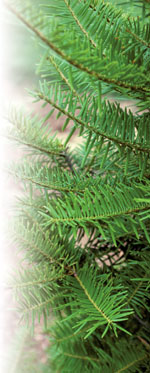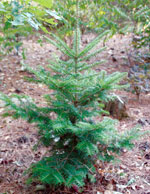Abies Firma, a Heat-Tolerant Fir for North Carolina
go.ncsu.edu/readext?235932
en Español / em Português
El inglés es el idioma de control de esta página. En la medida en que haya algún conflicto entre la traducción al inglés y la traducción, el inglés prevalece.
Al hacer clic en el enlace de traducción se activa un servicio de traducción gratuito para convertir la página al español. Al igual que con cualquier traducción por Internet, la conversión no es sensible al contexto y puede que no traduzca el texto en su significado original. NC State Extension no garantiza la exactitud del texto traducido. Por favor, tenga en cuenta que algunas aplicaciones y/o servicios pueden no funcionar como se espera cuando se traducen.
Português
Inglês é o idioma de controle desta página. Na medida que haja algum conflito entre o texto original em Inglês e a tradução, o Inglês prevalece.
Ao clicar no link de tradução, um serviço gratuito de tradução será ativado para converter a página para o Português. Como em qualquer tradução pela internet, a conversão não é sensivel ao contexto e pode não ocorrer a tradução para o significado orginal. O serviço de Extensão da Carolina do Norte (NC State Extension) não garante a exatidão do texto traduzido. Por favor, observe que algumas funções ou serviços podem não funcionar como esperado após a tradução.
English
English is the controlling language of this page. To the extent there is any conflict between the English text and the translation, English controls.
Clicking on the translation link activates a free translation service to convert the page to Spanish. As with any Internet translation, the conversion is not context-sensitive and may not translate the text to its original meaning. NC State Extension does not guarantee the accuracy of the translated text. Please note that some applications and/or services may not function as expected when translated.
Collapse ▲
Japanese Fir
JC Raulston ©
Firs are striking, spire-like trees that we often associate with the mountains and northern climates. Southern landscapes are seldom graced with trees in the genus Abies because they cannot tolerate the heat and soils with poor drainage. However, one species, the Japanese fir, Abies firma, will thrive even in our hot, wet climate.
This fir is a native of Japan where it is known to grow to 150 feet. This conical-shaped tree has open branches and light emerald green foliage. Abies firma is an excellent way to introduce the beauty of a fir to a Southern garden. It is a slow grower but can achieve heights of 20 to 50 feet and a width of 40 feet with age. One of the unusual features of the tree is the 5-inch, yellow-green cones that are borne upright on the branches.
The name firma means strong, and indeed this is a tough plant. It performs well in heavy clay soils and is tolerant of a range of moisture conditions. It requires full sun to prosper. This tree will continue to thrive through the worst of hot, wet Southern summers. Specimen trees are reported doing well in arboreta in Alabama, Georgia and North Carolina, including the JC Raulston Arboretum (JCRA) and The Sarah P. Duke Gardens.

Japanese Fir
Bryce Lane ©
Experimentation using A. firma as rootstock has provided some interesting results. Abies pinsapo ‘Glauca’, blue Spanish fir, A. koreana, Korean fir and Fraser fir grafted to A. firma rootstock have proven to be outstanding specimens. These plants withstand the heat and bright sunlight while the roots carrying the characteristics of the Japanese fir were able to thrive in the heavy clay soils with resistance to Phytophthora root rot.
Abies firma will make an excellent evergreen specimen with a relaxed yet formal silhouette. Since it is irregular in form, it complements the appearance of other species and blends into mixed borders. Its stately elegance and good adaptability make it an excellent choice for North Carolina gardens.
Carl Matyac


